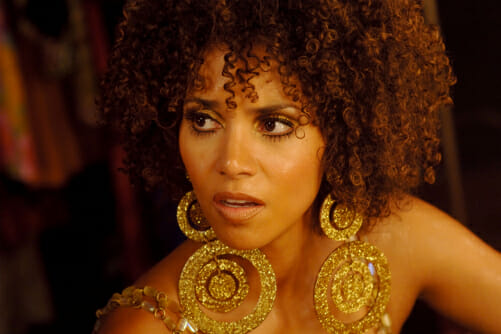Frankie and Alice

Director: Geoffrey Sax
Writers: Cheryl Edwards, Marko King, Mary King, Jonathan Watters, Joe Shrapnel, Anna Waterhouse, Oscar Janiger, Philip Goldbeg
Cinematographer: Newton Thomas Sigel
Starring: Halle Berry, Stellan Skarsgård, Phylicia Rashad, Chandra Wilson
Studio/Runtime: Freestyle Releasing/101 min.
Like the lazy screenwriter’s other favorite crutch, amnesia, multiple personality disorder in stories has always been a bit of a mixed blessing. It’s a fascinating concept that has contributed, in the hands of real artists, to some of the best movies ever made, from Psycho to Fight Club. More frequently, though, it lends itself to some really terrible studio plotlines, giving screenwriters an easy way out when they’ve written themselves into a corner. Frankie and Alice is a little bit different, since it doesn’t try to spring the whole MPD thing on you as a Shyamalanian twist, but it falls prey to the same pitfalls as previous movies exploring this territory—it’s more interested in exploring the disease than trying to make a compelling film.
-

-

-

-

-

-

-

-

-

-

-

-

-

-

-

-

-

-

-

-

-

-

-

-

-

-

-

-

-

-

-

-

-

-

-

-

-

-

-

-








































